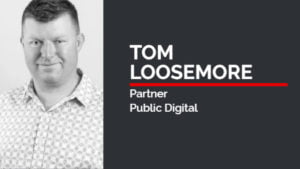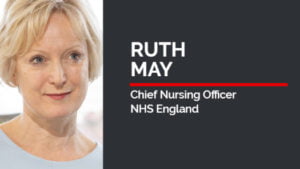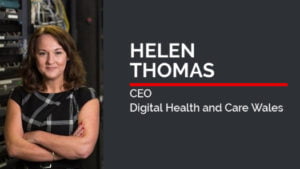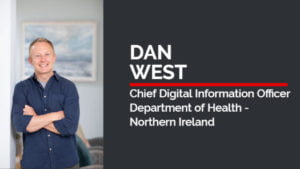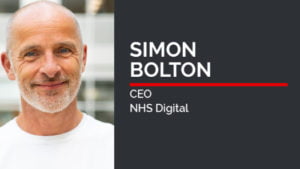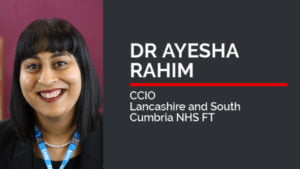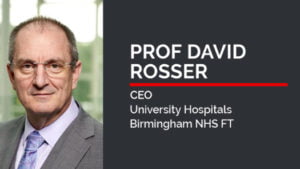Reflections, Rewired, and digital health in a post-pandemic NHS
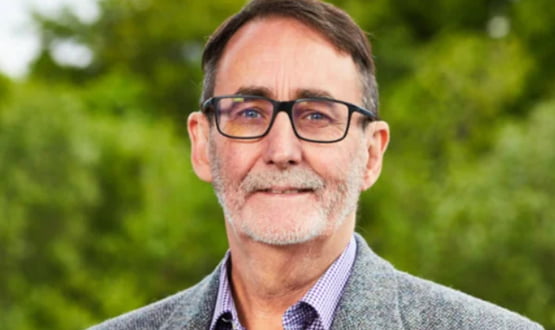
With less than eight weeks until Rewired 2022, Dr John Parry, Clinical Director for TPP, the event’s joint headline sponsor, is in the hotseat for an exclusive Q&A
John, you’ve worked in the digital health space for many years. What stands out to you the most about the last two years and COVID-19?
I think one of the most impressive things to come out of the last two years has been the sheer pace and scale of projects and adoption, despite the sector operating with an almost complete lack of headroom.
I’m sure you don’t need me to tell you that there has been a significant pivot in the way we deliver projects. Due to the greater demand for change, programmes needed to be provided much more rapidly than in pre-pandemic days and it has been fantastic for us to be able to respond to that.
Everyone working in digital delivered an awful lot in response to Covid-19, including supporting the bulk booking of vaccine appointments and updating almost 20 million Summary Care Records with Additional Information within the first six weeks of the pandemic.
Having said that, there’s no denying that the past two years have been difficult for all of us, with staff from every corner of the healthcare system having worked flat out. While we should certainly reflect proudly on the overwhelming amount of work that’s been achieved, we need to ensure we work at a pace that is sustainable whilst not losing sight of the positives to come out of the pandemic, such as wider digitisation.
What topics are you most eager to talk and hear about at Rewired 2022?
Each year I’ve attended Rewired, I’ve listened to some great talks and had so many interesting conversations. I anticipate that this year’s event will encourage even further debate and discussion given the many changes the NHS is currently undergoing, and I look forward to engaging in what is sure to be another fantastic year at Rewired.
I’m particularly eager to hear about improved integration and support of social care and how this can and should work in practice.
What are your thoughts on the recently announced merger of NHS Digital and NHS X into NHS England and Improvement and what impact do you think this will have on the digital health sector?
From what I understand, the aim of the merger is to improve the focus on digital within the centre and that’s definitely a good thing. It also presents an opportunity for us to work closer to the priorities of both NHS England and the Department of Health and Social Care. The potential for more of a partnership approach to working between the centre and the supplier community is something I welcome.
It’s certainly a big task and I’m sure we all expect there to be some teething problems as the transition takes place. There’s still a lot of questions we all have about how the change is going to work in practice but, if successful, it has the potential to improve governance and accountability within key central bodies.
I also hope the merger will consider the significance of having both clinical and patient voices represented at the centre to ensure policy continues to match real need.
Reflecting on the last two years and the cumulative impact of the pandemic, what do you think will be the most important change for the coming year?
It won’t come as news to anyone that tackling the elective backlog must be a key focus for the next year if we are to have any chance of preventing the waiting list from continuing to grow rapidly.
I think the importance of the mental health and wellbeing of patients, the community, and the healthcare workforce can’t be underestimated. Thankfully, we’ve already seen a positive shift towards more mental health awareness and, to make sure that everyone is supported in dealing with the overwhelming impact of the pandemic, this must continue over the next year and beyond.
Personally, I also hope that the next year sees a shift towards a truly global vaccine effort. While the support for the vaccine and booster campaign in the UK has been fantastic, we must also do our part in the effective delivery and recording of vaccines across the rest of the world.
Another big change we’ve seen this year is the start of the transition towards Integrated Care Systems. What benefits do you think these changes should offer to patient care?
Having worked in the sector for many years, I know that the NHS is not unfamiliar with reorganisation. ICSs certainly present an opportunity for growth and development.
Yet equally, the transition has sparked justified concerns that ICSs may simply encourage further silo creation. The principles behind ICSs – holistic and joined up care – are positive. To avoid silo working, we need to ensure real effort is put into national data exchange and national population health analysis.
ICSs are going to have a difficult time coming into their own against the backdrop of a growing elective waiting list and continuing pandemic demands. It may be some time before we’re able to truly measure their success.
What do you believe is the next step in the journey to achieving more wide-spread interoperability between different services, providers, and suppliers?
I think we all appreciate that the tech isn’t the barrier to achieving better interoperability. The focus here needs to be on governance and people. We need to utilise appropriate and effective levers and incentives to make sure people actually want to work together to achieve it. ICS’s have the power to mandate this so it’ll be interesting to see whether they fulfil their potential in this respect.
There are some isolated areas that have already made great strides in connecting different services and departments within institutions. Also, the GP Connect programme, which is now receiving a few million API hits a month, is a truly great example of interoperability to learn from going forward.
What are your thoughts on projects like NHS X’s EPR Accelerator and Innovator programmes and do you think they will have a positive impact of the pace of EPR procurement?
Much like the EPR Accelerator and Innovator programmes, we’ve seen a number of programmes brought forward over the years with the goal of digital enablement across the sector. Whilst we all support the acceleration of digitisation across services, we also need to ensure areas with plans already in place are given the opportunity to move forward with some autonomy.
The Accelerator programme in particular needs to ensure it doesn’t inhibit some of the positive work that’s been done by trusts up and down the country.
In your opinion, what have been some of TPP’s biggest successes over the last two years?
Perhaps the project that people ask about most is OpenSAFELY which, of course, is a success that cannot go unmentioned. We’ve told the story a few times now but one of the most incredible parts of it was how it started. It really began with a telephone conversation between ourselves and Ben Goldacre that progressed from drawing board to first publication in just 42 days. It truly was a fantastic example of delivery that we are incredibly proud to have been a part of.
Something that I really value and is key to TPP’s philosophy too is putting the patient at the centre. We released Airmid in early 2020, well ahead of its planned release date, to do just that. We designed the app to enable patients to take part in their own care and the onset of the pandemic really drove the demand for this.
Releasing our clinician app, Brigid, this year was another important moment. The pandemic and general digital acceleration really heightened the need to mobilise the clinician in different ways. Brigid enables healthcare staff to move around traditional care spaces whilst still having access to key tools to support care delivery. We also developed SystmOne Internet First early in the pandemic to support those healthcare staff who had to work from home or outside of these traditional environments. Being able to effectively respond to these evolving needs has been a real achievement.
Finally, with TPP as one of 2022’s co-headline sponsors, what are you most looking forward to about Rewired as it returns as a face-to-face event?
I’m looking forward to seeing people I may not have seen in-person for almost two years and engaging in the kind of great conversation that can’t be achieved over the phone or through a screen. It will no doubt be a fantastic opportunity to learn about the great things people have achieved during the pandemic and the exciting projects planned for the future.
Other confirmed Rewired 2022 speakers include:
